
He had hoped he could spare his three kids the traumatic childhood he had suffered, displaced by a war, fleeing shelling and gunfire.
But earlier this month, after sheltering in the basement of his home for nearly 10 days as Russian bombs pounded Kharkiv in northeast Ukraine, Malkhiz Razgoyev loaded his wife, children, relatives and several neighbours into a three-car convoy and made a desperate dash for safety.
They zigzagged across the country for days, not knowing where they would end up. Eventually they reached Ukraine’s southwestern border with Moldova, and after hours of waiting in the queue of cars that stretched for up to 10 miles, they crossed the frontier. Then came the struggle to find shelter, secure money, and figure out schooling for Mr Razgoyev’s children.
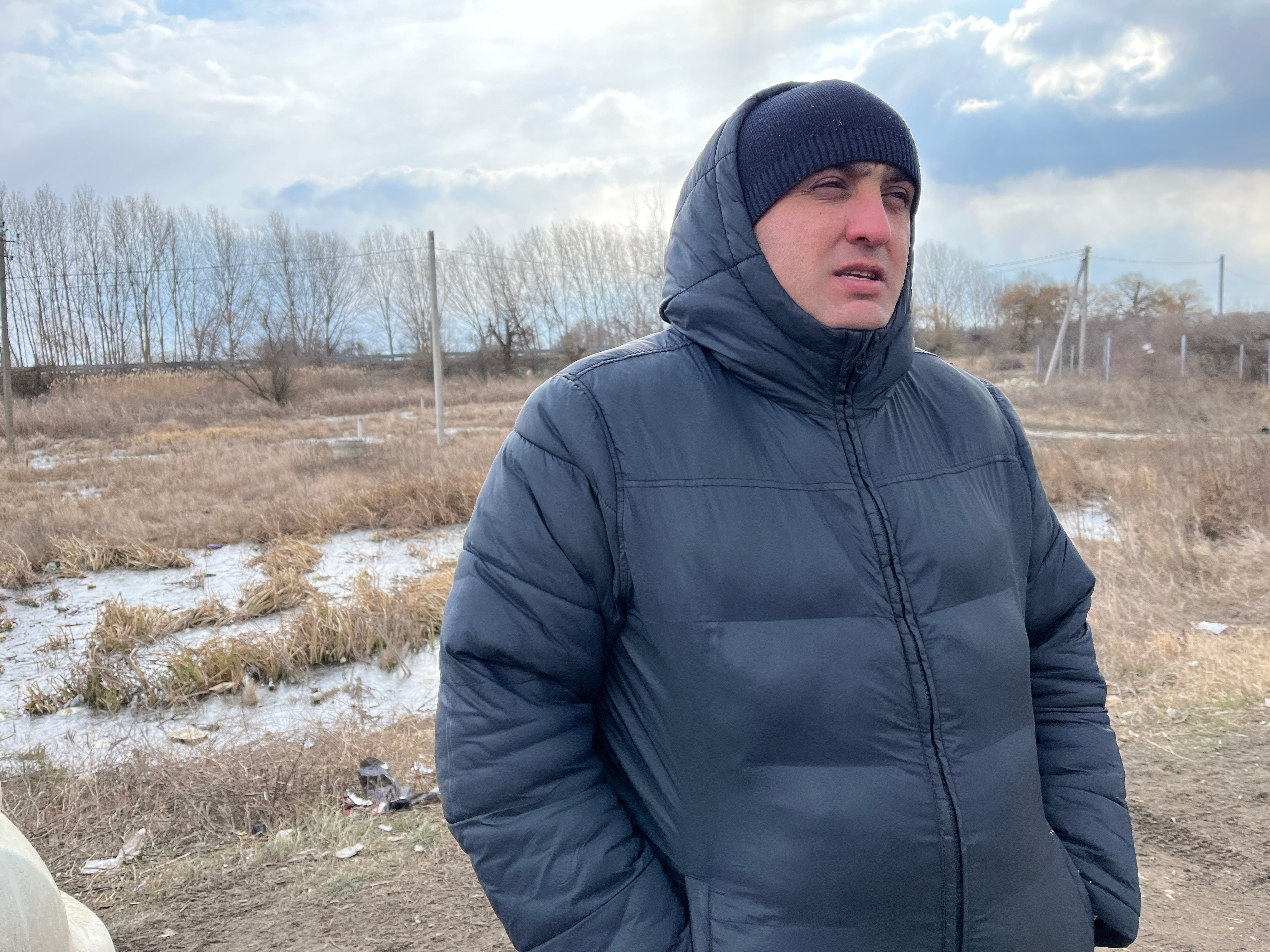
Just like 30 years ago, when he was forced to flee war in his native Georgia, Mr Razgoyev found his life once again shattered by conflict.
“It’s the 21st century, and I am living this life. I would never have imagined it,” he tells The Independent, standing outside on a bleak, cold winter’s day near the border crossing at Palanka. “I was already once a refugee. Now for the second time I am a refugee.”
Hundreds of civilians have been killed and more than 3 million turned into refugees by Russia’s war against Ukraine, with 335,000 crossing into Moldova, which is among the poorest nations in Europe.
Many in the west are shocked and appalled by what they regard as a major war on the European continent.
But for many citizens in the former communist nations, war has shaped their lives. In addition to a decade of overlapping wars in the Balkans, there have been Russian-backed wars in Moldova, as well as the 2014 land grab by pro-Kremlin gunmen in eastern Ukraine.
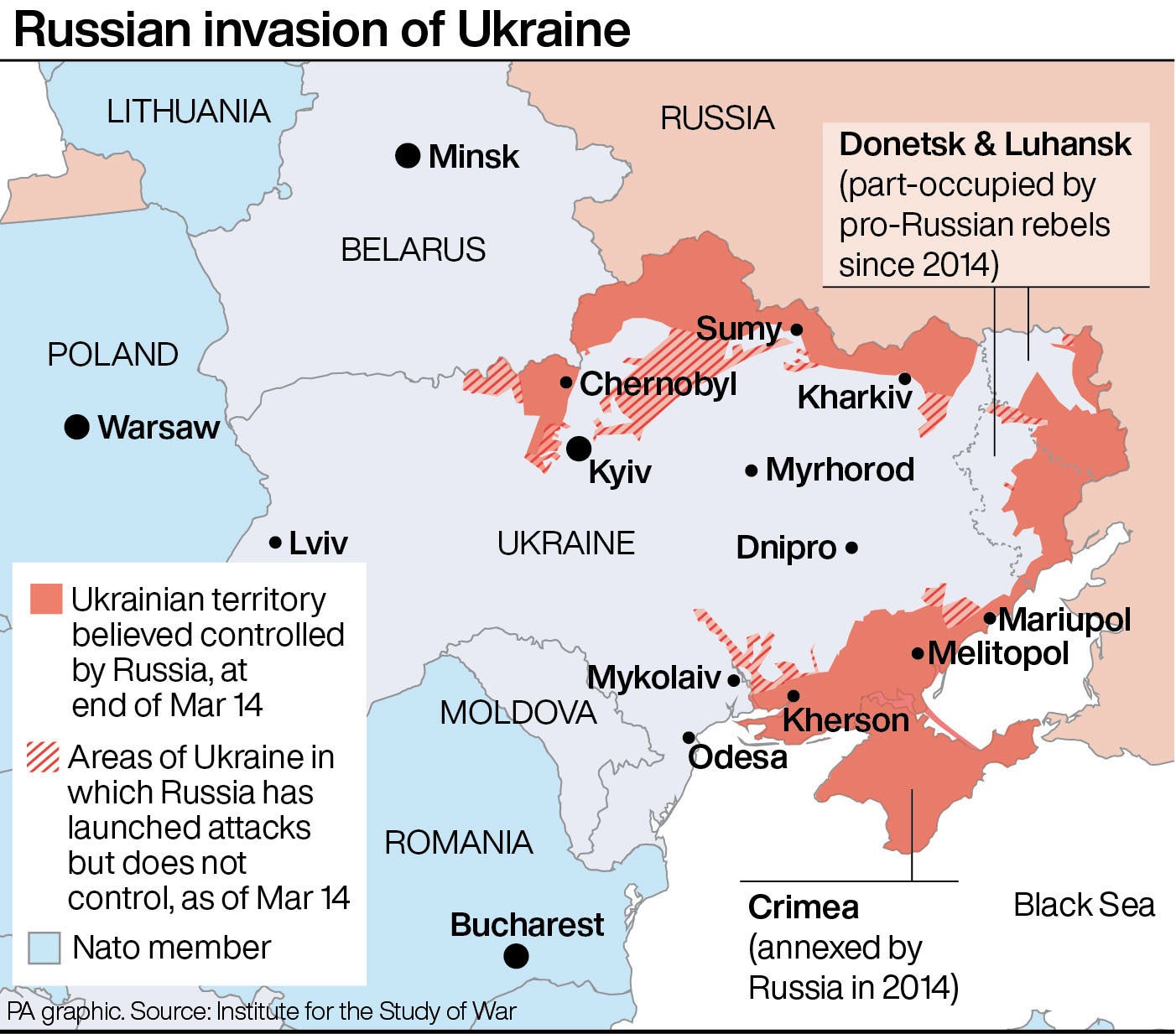
In Georgia, where Mr Razgoyev was born, Russian-backed separatist Abkhazian and South Ossetian forces fought against the government of the newly independent former Soviet republic for months, in a 1991-93 civil war that left up to 10,000 dead and 250,000 displaced. At the same time, Georgians were convulsed in a violent political struggle that left more than 100 people dead.
Mr Razgoyev was eight years old at the time. He struggled to understand the hushed, heated conversations among the adults around him. Then one day, his mother packed up some belongings and took him and his brother away, settling the family with an uncle in Kharkiv.
There, in Ukraine, he and his brother struggled to adjust, but eventually made a life for themselves. He launched a business in 2006, assembling and selling couches and tables for children’s rooms.
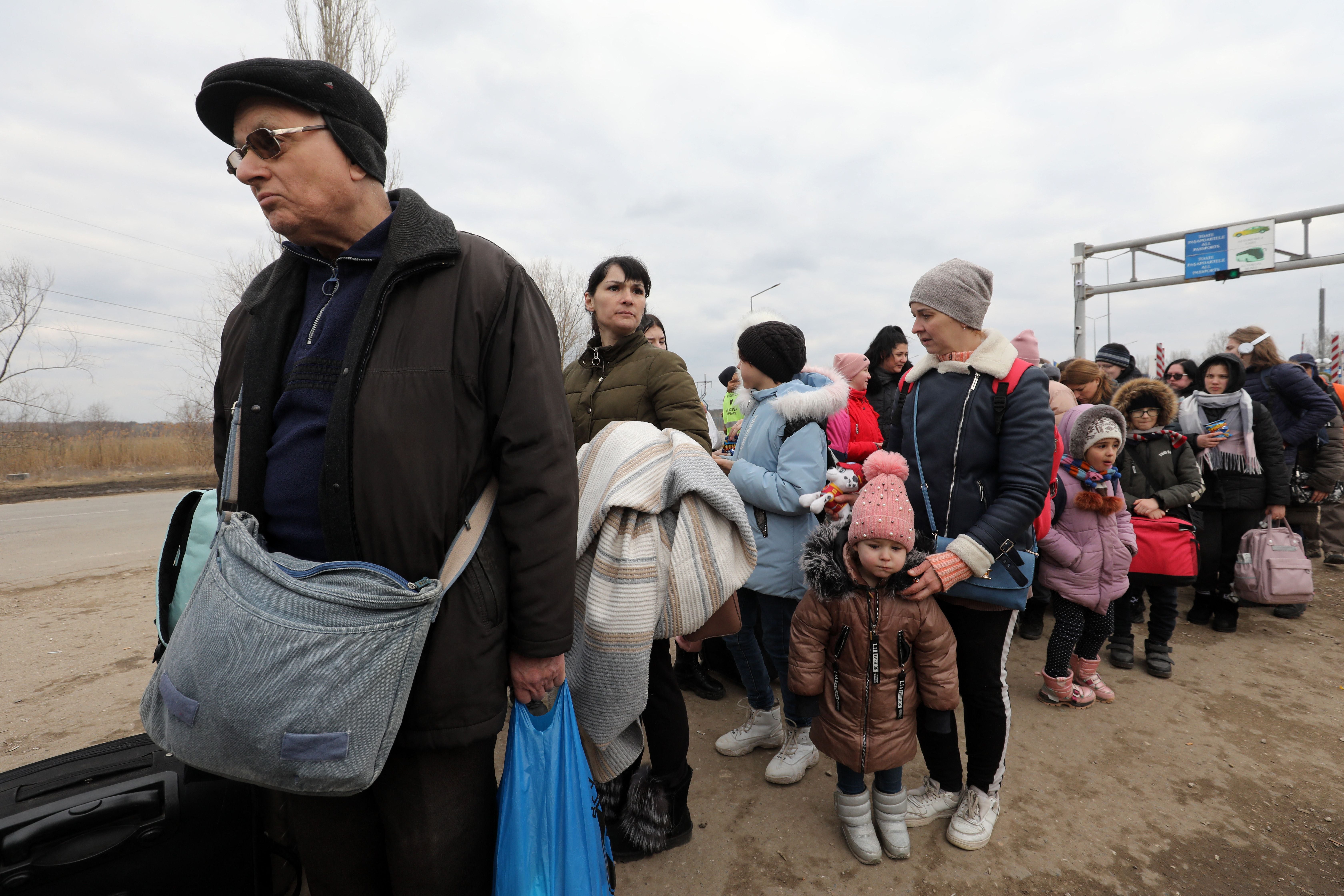
Mr Razgoyev met Olga, a Ukrainian native, on an online dating app. She loved animals, and worked at a store selling pet supplies. He loved children, and they would eventually have three: Artyom, now aged 10, and twins Anna and Bella, aged 8.
His career was a success. He was shipping furniture to the Donbas. In 2014, war engulfed eastern Ukraine, and a bomb struck one of his shops – but his business continued to expand, as did his family’s prospects.
“I suffered a bit because of what happened there, but not as much as I am suffering now,” he says.
The kids were growing up fast. Mr Razgoyev bought a late model SUV, and then a nine-seat Mercedes minivan that he uses to take his family back to Georgia once a year to see relatives.
“I had a nice life and a nice job,” he says. “I used to go to Turkey on holiday once a year.”
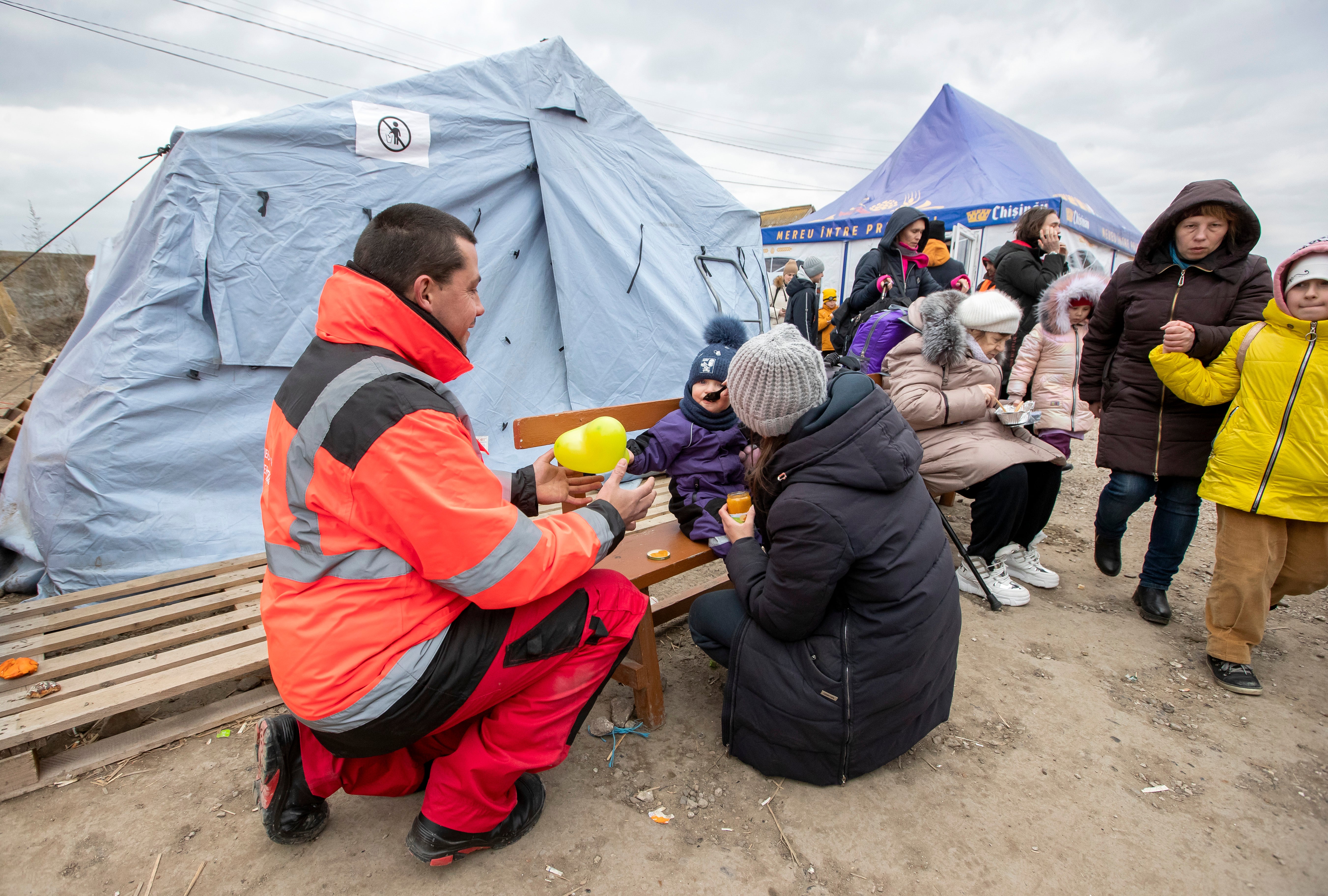
Life in Ukraine was improving. After years of stagnation and downturn during the 2014 war, the country’s economy was picking up steam, despite the Covid pandemic and the ongoing war in the Donbas.
Under pressure from the US and the European Union it sought to enter, as well as its own bustling civil society, Ukraine had put a damper on rampant corruption. Razgoyev voted in 2019 for Volodymyr Zelensky, a comedian, actor and producer who won the presidency with an unprecedented 73 per cent of the vote.
“I think he’s the best president we’ve had,” says Mr Razgoyev.
“He built some roads. And he’s done things that I’ve never seen with my own eyes any Ukrainian president do. He’s also young and has a very active presence that we never had.”
Mr Razgoyev did not believe that Russian president Vladimir Putin would attack Ukraine, and stayed put, even after the fighting started, thinking it would soon be over. When the bombs started to land, he and his family scampered down into the basement of their home in Kharkiv.
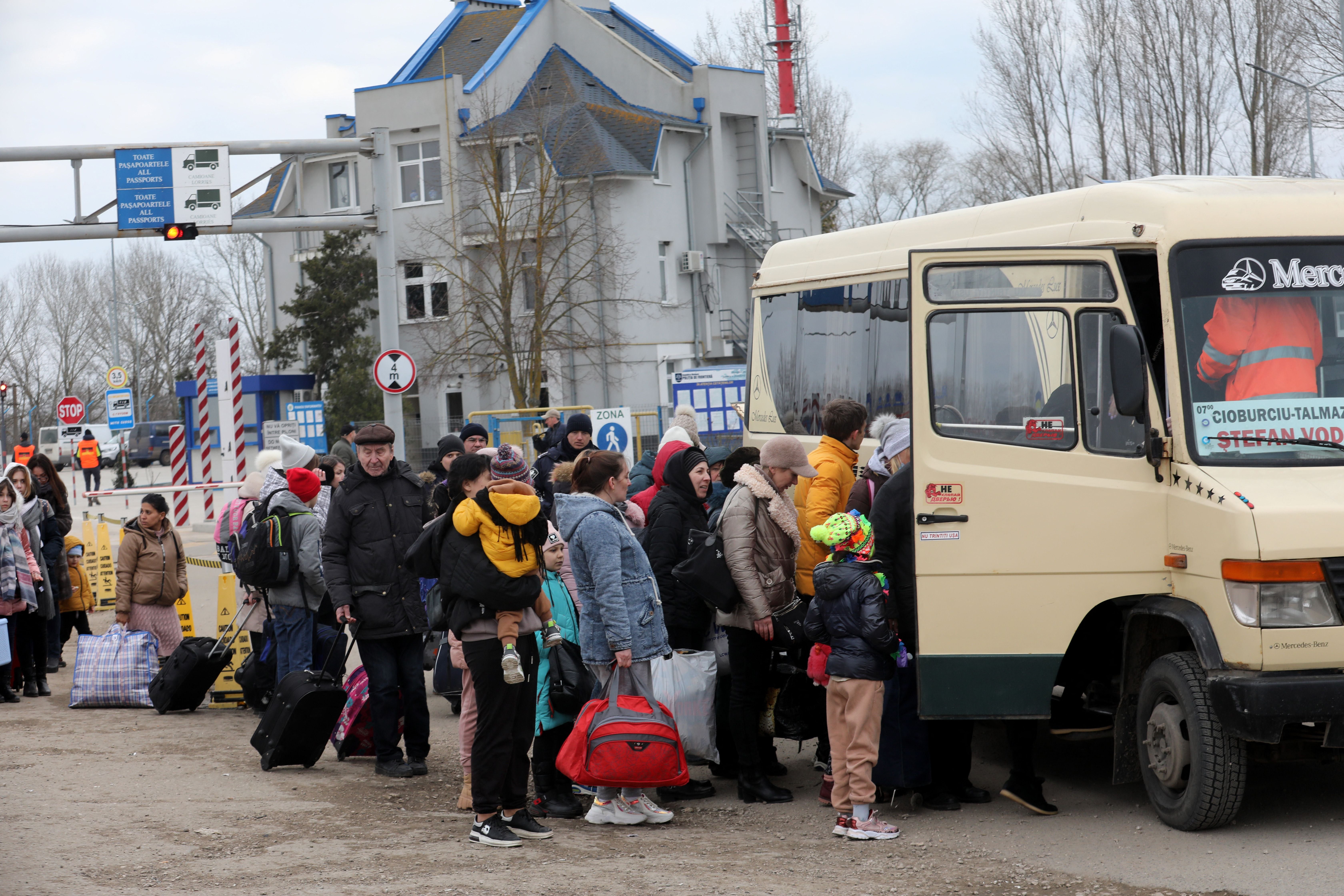
After Russia failed to secure a quick victory, Mr Putin’s armed forces began hitting civilian buildings, and that’s when the horror began.
“They started to bomb the schools and kindergartens,” says Nina, 44, a Ukrainian refugee, who arrived in Moldova with her 10-year-old son a day ago, and is sheltering inside an exposition centre turned dormitory for refugees.
Mr Razgoyev’s family decided to leave Kharkiv after a 13 year-old-boy, a friend of his son, was killed while his family was escaping an airstrike that destroyed their apartment building.
“They used to play football together,” he says.
Now it was Mr Razgoyev’s own children who were struggling to understand what was happening. He withdrew all the cash he could from the bank. They gathered blankets and hastily packed suitcases.
The road trip was tough. Getting fuel was a challenge. They stopped frequently, scoured the internet for clues, and picked up tips, warnings, and guidance from others on the road.
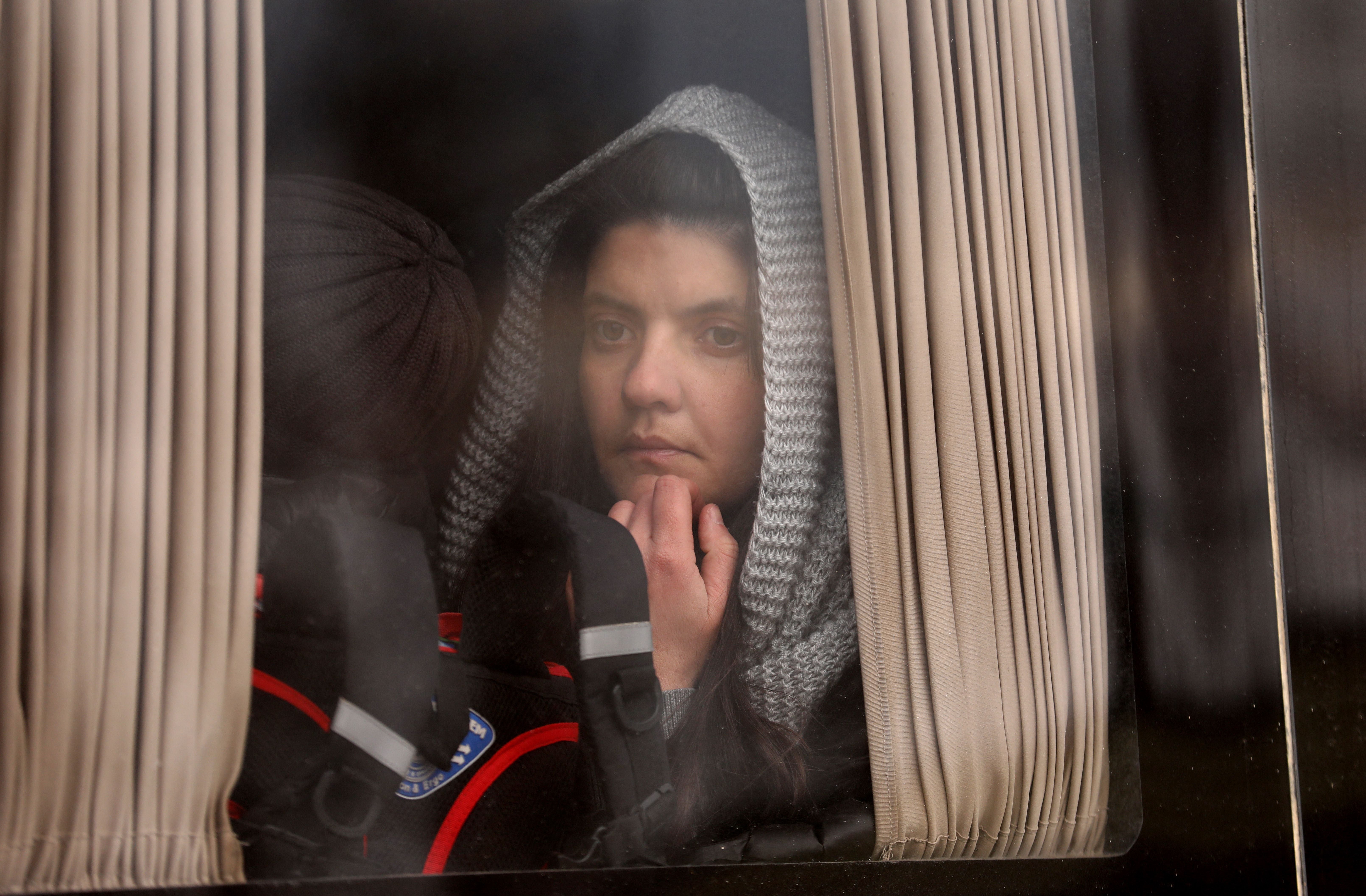
As the father of three children, Mr Razgoyev is exempt from martial law restrictions that bar any military-age male citizen from leaving Ukraine.
But after the initial relief of crossing the border at Palanka, reality set in.
Ukrainian refugees are directed first to a temporary tent encampment near the frontier, but 90 per cent manage to find families to host them. The already fragile Moldovan government is struggling to meet their needs.
“We have many children and women,” says Ala Volentik, a volunteer helping run the refugee dormitory at the expo centre. “There are people with disabilities and medical conditions.”
The majority of Ukrainians and other refugees who arrive in Moldova then head to Poland or other parts of Europe.
When I know that my kids and my wife are safe here, I would go back to fight for Ukraine
Mr Razgoyev’s neighbours, who had joined his family’s escape, departed to stay with relatives who lived in Germany. But he, his wife and their children, along with his brother’s family, stayed in Moldova.
He searched on the web and found a reasonably priced house – more like a cabin – in Ivancea, a remote village in a sparsely populated rural area north of the capital Chisinau, and they managed to rent it from the sympathetic owner.
The house is freezing, and he and his brother spend endless hours chopping wood for the fireplace. But it is a roof over their heads.
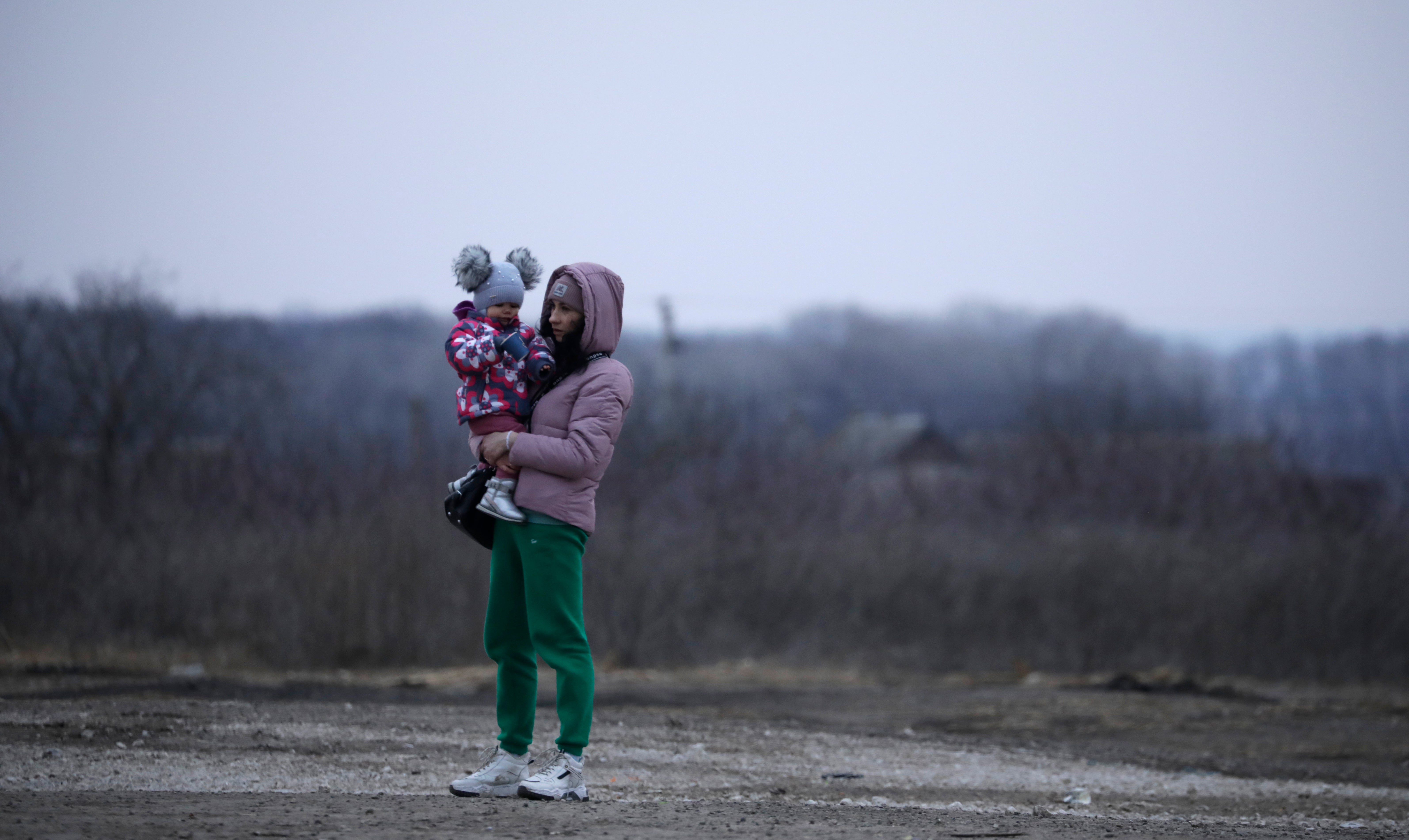
Next came worries about money. They had stacks of Ukrainian cash. But banks and currency exchanges in Moldova suddenly refused to exchange any more. Someone would have to go back into Ukraine and redeposit the money onto a debit card so it could be withdrawn abroad.
Mr Razgoyev worried that, if he returned, he would not be allowed to leave and bring the card back. So Olga headed back into Ukraine, and he waited nervously for hours in the harsh cold at the Palanka frontier for her to return safely.
A health issue exempts him from being a soldier, but once his children are settled, he hopes to go back to Ukraine.
“When I know that my kids and my wife are safe here, I would go back to fight for Ukraine,” he says. “Because it is my home.”
Despite everything that has happened, he harbours no anger for Russians or even for Russia, a country he knows well.
“It’s not their fault,” he says. “They’re suffering too. I blame one little man who has the devil inside him.”
The Independent has a proud history of campaigning for the rights of the most vulnerable, and we first ran our Refugees Welcome campaign during the war in Syria in 2015. Now, as we renew our campaign and launch this petition in the wake of the unfolding Ukrainian crisis, we are calling on the government to go further and faster to ensure help is delivered. To find out more about our Refugees Welcome campaign, click here. To sign the petition click here. If you would like to donate then please click here for our GoFundMe page.







